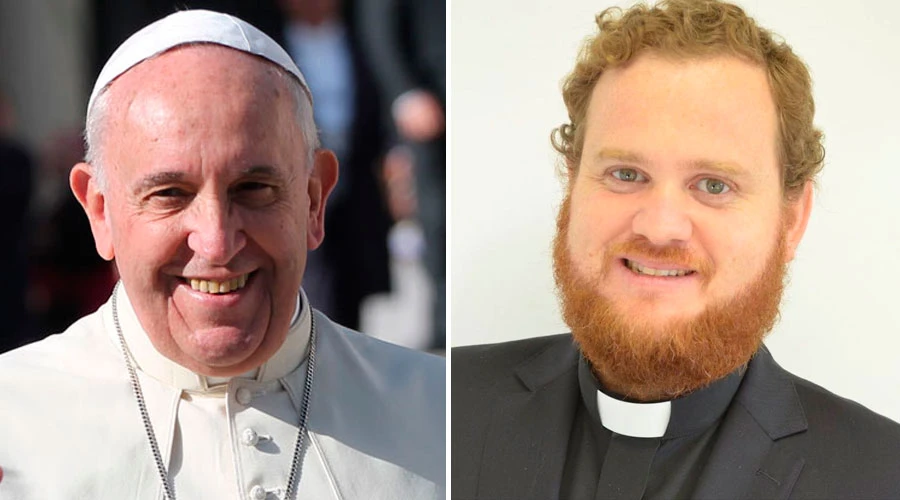http://www.myspiritfm.com/News?blogid=8267&view=post&articleid=135419&link=1&fldKeywords=&fldAuthor=&fldTopic=0

IMAGE: CNS/Paul Haring
By Cindy Wooden
VATICAN CITY (CNS) -- Pope Francis will send high-level observers
to the pan-Orthodox council meeting in Crete as a sign of respect, support and
encouragement of the Orthodox Church.
The Holy
and Great Council of the Orthodox Church was scheduled to open June 19,
which is Pentecost on the Julian calendar, and run through June 26.
Ecumenical
Patriarch Bartholomew of Constantinople invited Pope Francis to send
observers to the meeting on the Greek island of Crete, and the pope chose
Cardinal Kurt Koch and Bishop
Brian Farrell, respectively the president and secretary of the
Pontifical Council for Promoting Christian Unity.
Sending the Vatican's top ecumenical officers demonstrates
that "it is the Holy Father's judgment that this is supremely important
for the Orthodox, for our relationship with the Orthodox Church and, beyond
that, it's supremely important for the Christian witness in a world that is
ever more confused about the role of religion," Bishop Farrell told
Catholic News Service June 8.
Council members -- 24 bishops from each of the 14
autocephalous Orthodox churches -- are scheduled to approve six documents,
including statements on: the mission of the Orthodox Church in the contemporary
world; the pastoral care of Orthodox living outside their church's traditional
homeland; how the autonomy of new Orthodox churches is determined; rules
regarding marriage; the importance of fasting; and relations with other
Christians.
Leaders of the Orthodox churches have been discussing hopes
for such a meeting for almost 100 years. Planning meetings began in the 1960s,
but even as the start date drew near, there were some fears that not all 14 self-governing Orthodox churches would send delegations.
The Orthodox Church of Bulgaria demanded June 1 that the
meeting be postponed until a discussion could be held on its list of concerns,
which included criticism of the how little the texts under consideration could
be amended. The Bulgarians also objected to the invitation of observers from
non-Orthodox churches and said they would not participate if the meeting went
ahead as scheduled.
After the Antiochian Orthodox Church also asked for a delay
and signaled a willingness to stay away from the meeting, a Russian Orthodox leader
asked June 3 that a pre-council meeting be held by June 10 to work out some of
the remaining concerns.
The Ecumenical Patriarchate, however, issued a statement
June 6 saying the process already agreed upon by the heads of the 14 churches
would not change and calling upon all 14 churches "to rise to the occasion
and participate, on the pre-determined dates, in the sessions of the Holy and
Great Council."
The Catholic Church is hopeful that the council will take
place, Bishop Farrell said.
"Every process that highlights and strengthens unity
among Christ's followers is in line with the Gospel and every process that does
not bring about unity is a negation of the prayer of Jesus at the Last
Supper" that his disciples be one, the bishop said. "It is hugely important
for Christianity and, therefore, for the Catholic Church that the pan-Orthodox
council be an effective sign of the unity of Orthodoxy."
Bishop Farrell said the Orthodox decision to open the
meeting on Pentecost is not simply symbolic, but is a spiritual affirmation
that the meeting and its deliberations must be guided by the Holy Spirit.
Among all the churches and Christian communities the
Catholic Church has formal relations with, the Orthodox are unique. The
Catholic Church recognizes the Orthodox as a "sister church," which
has maintained apostolic succession of its bishops, a valid priesthood and sacraments.
However, different Orthodox churches and, especially different sectors within
those churches, do not always recognize the Catholic Church as a "sister
church" with valid sacraments; the draft Orthodox document on relations
with other Christian churches does not directly address the issue, but insists
ecumenical dialogue is "imperative."
"In the Catholic view," Bishop Farrell said,
"Orthodoxy is the Eastern part of the church and, as Pope John Paul often
repeated, we long for the day that the church can breathe with both lungs"
-- East and West. The council could be "a big step in the right
direction," he said.
"We would like our presence to be a sign of our great
support for the unity of the Orthodox Church," he said, "and for
their efforts to respond to the many challenges of living in today's society
and their intention to do that as a body rather than as separated into independent
churches."
- - -
Follow Wooden on Twitter: @Cindy_Wooden
- - -
Copyright © 2016 Catholic News Service/U.S. Conference of Catholic Bishops. www.catholicnews.com. All rights reserved. Republishing or redistributing of CNS content, including by framing or similar means without prior permission, is prohibited. You may link to stories on our public site. This copy is for your personal, non-commercial use only. To request permission for republishing or redistributing of CNS content, please contact permissions at cns@catholicnews.com.
Full Article








